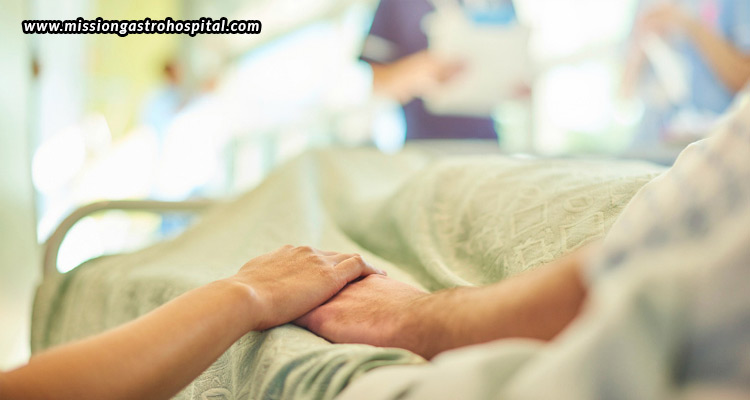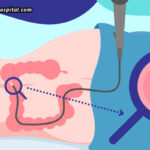Surgery on the gastrointestinal system is done to address disorders that affect the stomach, intestines, oesophagus, liver, and other associated organs. Care after surgery is essential for a quick recovery and to avoid problems. Frequent symptoms following surgery include of discomfort, nausea, exhaustion, and altered bowel habits. Recovery requires careful incision care, a gradual increase in physical activity, and strict dietary modifications. Progress is tracked when follow-up appointments are kept and lines of communication are kept open with medical professionals. Patients can assist their healing process and make a full recovery by adhering to the instructions mentioned in the blog below.
What to expect after gastrointestinal surgery
- Hospital stay and initial recovery
The length of stay in the hospital might vary from a few days to several weeks, depending upon the nature and complexity of the procedure. Following surgery, you will be attentively examined in the recovery room as vital indicators including blood pressure, oxygen saturation, and heart rate are continuously checked. Following GI surgery, discomfort is typical, therefore managing pain will be a top concern, with medication given as required. You can start off with a liquid diet or with eating and drinking restrictions. As your digestive system starts to work properly, you will gradually move on to solid meals.
- Common post-surgery symptoms
It’s normal to have pain and discomfort around the surgery site, so it’s crucial to take any recommended painkillers and let your doctor know if you experience any unusual or severe pain. There are drugs to assist control nausea and vomiting, which are frequent and typically transient symptoms. It’s natural to feel weak and exhausted as your body heals. Additionally, you can have irregular bowel motions, such constipation or diarrhoea. These are typically transient but need to be watched out for.
- Incision care
In order to prevent infection, follow your doctor’s advice for cleaning and wound care. Keep an eye out for any symptoms of infection, such as redness, swelling, or discharge coming from the incision site, and notify your healthcare professional right away if you see any of these. To maintain a clean and dry wound site, change dressings as directed by your healthcare practitioner.
- Physical activity
It’s advised to walk slowly to improve circulation and avoid issues like blood clots. Short walks at home or around the hospital might be helpful. However, till your doctor gives you the all clear, stay away from hard lifting, strenuous activities, and bending.
- Follow-up sessions
Keep track of your progress and address any issues by showing up for all planned follow-up sessions. Your physician will evaluate the site of your incision, your general healing, and any lingering symptoms to make sure your recovery is proceeding as planned and that any problems are taken care of right away.
Tips for a smooth recovery
- Adhere to post-surgery instructions
Pay close attention to the post-surgery care instructions that your healthcare team provides and follow your doctor’s directions. To promote a speedy recovery, it is important to take painkillers as prescribed and complete the entire course of antibiotics given.
- Manage pain effectively
Take your prescription drugs as directed; however, if your pain is not adequately controlled, don’t be afraid to ask for modifications. Additionally, to assist in controlling pain and improving comfort throughout recovery, you could always additionally try strategies like deep breathing exercises and cold packs, but only after enquiring from your healthcare practitioner.
- Preventing complications
Keep an eye out for infection symptoms and notify your healthcare practitioner right away if you have any concerns. Steer clear of alcohol and tobacco since they might hinder healing and raise the possibility of problems. Try to keep yourself as mobile as possible to avoid blood clots, and wear compression stockings if your physician prescribes them.
- Physical and emotional well-being
Take small steps towards healing, then progressively raise your level of exercise. Seek emotional support from friends, family, or a therapist to help you deal with the stress and worry that come with the upcoming surgery and recuperation. To help with the healing process, make sure you receive lots of relaxation and good quality sleep.
- Dietary adjustments
Begin with clear liquids, progress to soft foods, and then progressively add solid meals back in as tolerated. Stay hydrated by consuming lots of liquids, particularly if you’re experiencing diarrhoea. Consuming a nutritious, well-balanced diet full of fruits, vegetables, whole grains, lean proteins, and other nutrients promotes healing and general health. A healthy diet plays a very important role in managing gastrointestinal disorders.
- Monitor your symptoms
During follow-up appointments, discuss your symptoms, pain threshold, and any worries you may have with your healthcare practitioner. You may also keep a recovery journal. When you experience extreme pain, continuous vomiting, a high temperature, trouble breathing, or any other troubling symptoms, know when to get help.
- Long-term lifestyle changes
To support long-term digestive health, maintain a healthy, balanced diet. After you’re fully recovered, make regular exercise a part of your routine to support your general health. As advised by your healthcare practitioner, keep up with routine medical check-ups and screenings to monitor and maintain your post-surgery health.
Following the advice provided and knowing what to anticipate following surgery will help you recover from the procedure more skilfully. Each stage of the healing process, from following food restrictions and pain management to keeping an eye out for infection symptoms and preserving your physical and mental well-being, is very important. Have faith in and be in constant communication with your medical team; pay close attention to their advice; and take proactive steps to aid in your recovery. You may successfully recover and restore your health and quality of life with the right care and attention. Mission Gastro Hospital, as the best gastroenterology hospital in India, offers the finest treatment of all kinds of gastrointestinal issues, along with guaranteed thorough and customized care, assisting you at every stage of your recuperation.








